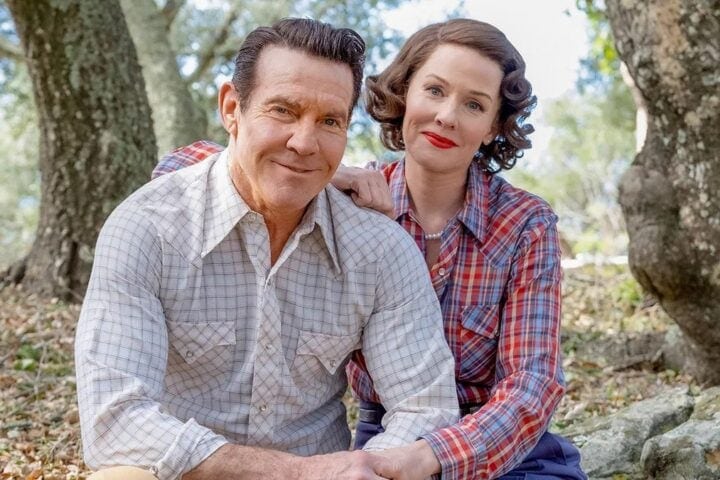Kurosawa Kiyoshi is a master of sustaining an ineffable kind of eeriness, especially when mounting horror films. His recent Chime, which is only available as a digital token, was so uncommonly disturbing in part for its long and flowing and tightly coiled shots that appeared to explicate everything in the physical space while revealing little emotional or spiritual about the characters. Kurosawa is an empathetic but unsentimental poet of the modern void.
Like Pulse and Chime, Cloud is obsessed with media-stoked alienation, and it benefits mightily from Kurosawa’s formal mastery. For half the film’s runtime, Kurosawa twists one up in dread, with menacing long shots and pregnant pauses that seem to express wells of bitterness. Said dread is intensified by the tricky and digressive narrative. There’s a tension here, consciously stoked, that’s spurred by the question of where the hell this thing is going.
Yoshii (Suda Masaki) is a young man with a look of disaffection that’s as characteristic of Kurosawa’s cinema as a certain wide-eyed stare is to Stanley Kubrick’s. He works at a factory, where his boss, Takimoto (Arakawa Yoshiyoshi), encourages him to strive for a management position, and carries on a detached relationship with Akiko (Furukawa Kotone). The light of Yoshii’s life, though, is buying junk from stores and warehouses and reselling it as premium goods online under the username “Ratel.” Like many of us in the modern era, Yoshii’s gods are money and tech, which he sees as gateways toward freedom.
Cloud is driven at first by Yoshii’s efforts to escape the drudgery of living paycheck to paycheck. He quits the factory job and moves out of a cramped Tokyo apartment into the countryside where he can in theory conduct his dodgy online business with less scrutiny. Yoshii’s negotiations over the goods are staged by Kurosawa with hard, crisp clarity, suggesting that we’re watching a modern business thriller in which a corrupt upstart will fly too close to the sun. However, Cloud grows more figurative as Ratel comes to dominate Yoshii’s life, spurring uproars online as consumers discover that he’s cheating them. People in Yoshii’s real life are closing in on him as well, especially a cop who pieces together the nature of his business.
A horror movie gradually subsumes the business thriller that we’ve been watching: Shadows grow, mysterious figures hover about, and threats of home invasion disrupt Yoshii’s ordered and antiseptic life. If the city life of Cloud’s early passages seems menacing in the Kurosawa-thriller tradition, rich in sounds and sights that seem to dwarf human identity, the primordial countryside of the film’s second half is hardly an improvement for Yoshii, a realm of escalating danger that suggests a metaphor for how we lose ourselves in online identities. (Cloud shares structural and aesthetic conceits with Hamaguchi Ryûsuke’s Evil Does Not Exist, which is intriguing given that Hamaguchi once studied with Kurosawa.)
Cloud is gripping, but it makes questionable demands. It expects us to find it shocking that it’s possible for people to upsell crap online, a naïve pose that’s easily waved way given Kurosawa’s confidence. More challenging, though, is a turn to surrealism that has the paradoxical effect of making Cloud’s second half feel ordinary, at least in comparison to its foreboding first half and Kurosawa’s films in general. Rather than taking Cloud to new free-associative heights, a twist transforms the film from a riff on social media malaise into…an action movie.
The last third of Cloud is composed almost entirely of a well-staged and atmospheric gunfight set inside a massive factory that nevertheless may spur in Kurosawa’s admirers a thought along the lines of “that’s it?” A perhaps too legible metaphor justifies the film’s shift in tone. The characters begin to behave in a frenzied manner that parodies the endless rage that social media stokes from its users. Kurosawa literalizes the online rage machine here with physical violence, triggered by sometimes arbitrary betrayals among the characters.
Yoshii is vilified, and the online bashing that’s typically anonymous in real life is rendered intimate and physical here. It’s as if social media is a transmitted disease that turns people into video game assassins, opening up a fissure in reality, with the online cloud swallowing up the physical world. That sounds evocative and intellectual in theory, and yet the reality on screen is that an eerie social thriller has been hijacked by sharp yet familiar gunplay.
Also inescapable is that Kurosawa expressed a similar notion of social decay in Chime in a third of Cloud’s running time without losing the menacing air of mystery that pervades his greatest films. Cloud could grow in stature over time, as Kurosawa’s films often do, but the collective loss of identity that grips its characters causes Cloud to lose its own.
Since 2001, we've brought you uncompromising, candid takes on the world of film, music, television, video games, theater, and more. Independently owned and operated publications like Slant have been hit hard in recent years, but we’re committed to keeping our content free and accessible—meaning no paywalls or fees.
If you like what we do, please consider subscribing to our Patreon or making a donation.




“Empathetic yet pittiless”? Which is it, empathetic or pitiless? One cannot be both at the same time.